Minsk’s muddled media clampdown could jeopardize warming of relations with the West.
Andrei Yahorau: Mistakes in Paleckis’ report are the downside of confusion in Belarus

The mistakes in the draft report mainly result from the lack of united position among Belarusan political players the European Parliamentary had meetings with.
This opinion in the talk with the EuroBelarus Information Service shared Andrei Yahorau, political scientist and the head of the Centre for European Transformation.
He believes that the information found in Paleckis’s report is often exaggerated along with being untrue to the facts; however, the expert recalled about the temporal status of the report that will still be subject to many changes.
Did Belarus fail to feel the great moment?
Besides, the EU foreign policy falls within the competence of the EU Council of Ministers and the European Commission. And before EU policies towards Belarus will be reviewed, communication between these three agencies is going to be rather slow.
“That is why Paleckis’s report should be looked upon as generalized and preliminary, and certain efforts can still be made in order to influence its contents. It means that consolidated position of Belarusans can considerably change the report’s look in the future,” highlighted Andrei Yahorau.
The expert noted with regret that no one says how important the document itself is, while the procedure of reviewing the EU policies towards Belarus is introduced for the first time in the European Parliament.
“Basically, thanks to this document, Belarus is high on the EU agenda: debates are going on, and lots of people are working on it,” the political scientist noted. “Thanks to this paper, Belarus got in the focus of attention. We should value that and have a correspondent approach”.
How can the foreigners understand Belarusans?
Though under such important events it is desirable for the Belarusans to coordinate their actions, there are still no signs of that, Andrei Yahorau noted.
“For example, Justas Paleckis met lots of people when he was on a visit to Belarus. And we can fancy that the Office for a democratic Belarus and BISS were telling him their former position, which is “the higher are the sanctions, the bigger are repressions”. Thus, the EU should lower the sanctions to make the level of repressions lower as well,” the expert exemplified his words. “Other people, such as human rights fighters and some politicians — tell him about the bloody regime and that it is impossible to work in these conditions; whereas those who are in political emigration tell him that one cannot do anything in Belarus without permission from the KGB office”.
Accordingly, trying to integrate different moments in his view of the situation, it is but logical that Justas Paleckis can’t adopt totally correct and clear stance as to the situation in Belarus.
“Such mistakes and blunders cannot but appear in the report; however, it is the downside of confusing situation in Belarus,” Andrei Yahorau stated. “If there existed at least some mainstream general line for everyone, then it would be much easier to influence the decisions towards Belarus confirmed in the EU only by focusing on this line”.
Others
-
In Belarus, a rising fear: Will we be the next Ukraine?
The relationship between Russia and Belarus has never been an easy one. The two former Soviet republics have spent the last two decades on a roller coaster ride — sometimes allies, sometimes adversaries in heated public rows.
-
The EU’s Benign Neglect of Eastern Europe
Between November 6 and December 11, 2015, Carnegie Europe continued its Capitals Series. In this second phase, the focus was on the EU’s Eastern neighbors, which the bloc has so often zigzagged over in trying to establish a coherent policy toward them collectively or bilaterally.
-
New ENP and Civil Society’s Role in Focus of the 7th EaP CSF Annual Assembly (Photo)
The 7th Annual Assembly of the Eastern Partnership Civil Society Forum was held in Kyiv on 19-21 November attracting around 300 participants, observers and guests who attended more than 20 sessions and a Networking Fair in the framework of the Assembly.
-
Is social economy a phenomenon for Belarus?
The conference “Social economy: how to be successful despite the crisis” launched in Minsk on October 22.

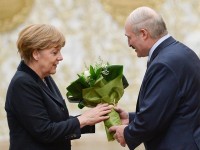
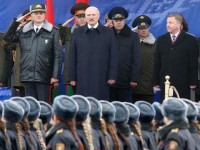
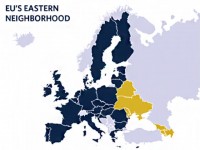
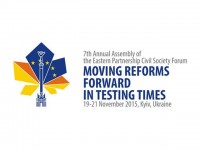
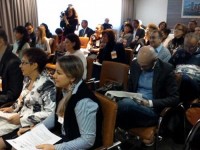


Comments
From farewell to a new Eastern policy and towards a new development
Poland and Germany were both initiators and drivers of a New Eastern policy linked to the Eastern neighborhood and Russia/Soviet Union.